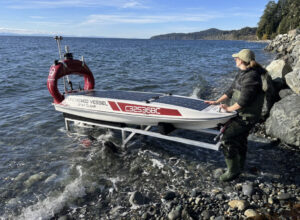
Wave Watching
In this episode of The Root & STEM Podcast, guest host Sofia Osborne speaks with Madie Bouvier-Brown, marine operations lead at Open Ocean Robotics.


In this episode of The Root & STEM Podcast, guest host Sofia Osborne speaks with Madie Bouvier-Brown, marine operations lead at Open Ocean Robotics.
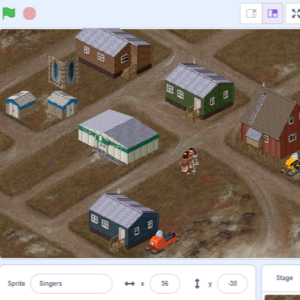
Students will gain an introduction to the basic functions of Scratch through the creation of a game. Students will learn about sprites, costumes, and the use of sounds. This game is a great way to incorporate throat singing into the curriculum, as students will create sprites that throat sing with different sounds.
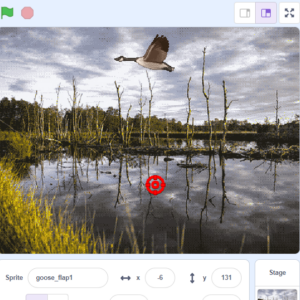
Students will gain an introduction to the basic functions of Scratch through the creation of an interactive target game inspired by the Cree people’s traditional goose hunt. In this project, students will learn about sprites, costumes, backdrops, and animations.
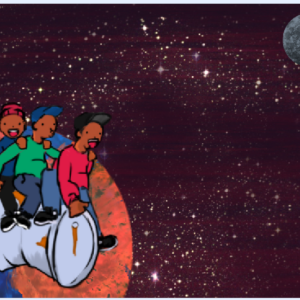
This activity will use images from the story book “Trip to the Moon” written by Vera Evic, an author from Pangnirtung, Nunavut. Students will animate the images and create a scene from the book where kids use an oil drum rocket to travel to the moon.
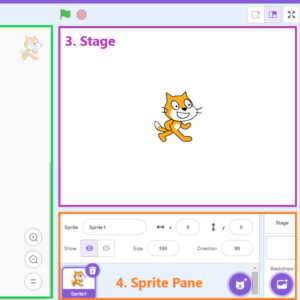
In this resource, we present three culturally relevant lessons tailored to Nunavut culture and way of life, designed to introduce students to the foundational concepts of Scratch programming.
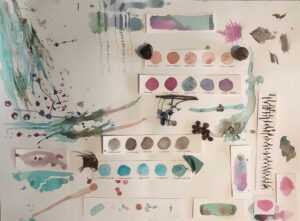
On this episode of the Root & STEM podcast, artist, educator and environmentalist, Betty Carpick, speaks about her unique interest and skill in creating art with natural supplies.
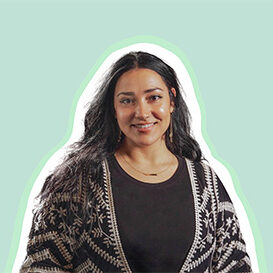
On this episode of the Root & STEM podcast, muralist Jess Spagnolo, brings us along her journey as an artist. She begins by sharing her behind the scenes thoughts during the illustration of the Root & STEM magazine’s issue 9 cover.
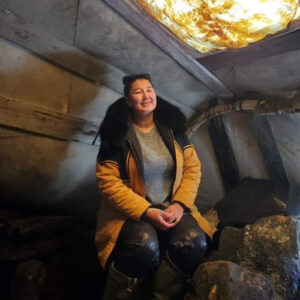
On this episode of the Root & STEM podcast, Director Of Heritage for the Government of Nunavut, Caroline Whittle, shares her insight on the state of language preservation among the Inuit community in Nunavut.
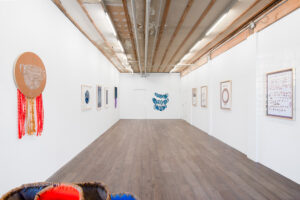
On this episode of the Root & STEM podcast, Sofia Osborne speaks with Tania Willard, an Indigenous artist/curator and assistant professor at the University of British Columbia about her journey as an artist and connecting with and expressing her culture.
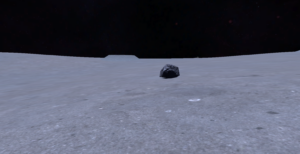
In this simulation- you’ll operate as the sole controller of a virtual rover- stationed at Mission Control. From steering the rover to analyzing data- you’ll gain insight into the mission’s requirements.
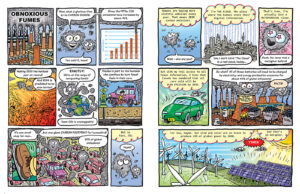
A comic by Kevin Frank.
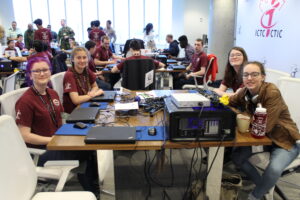
On this episode of the Root & STEM podcast, Sheeana Bolton and Timothy King of the Information and Communications Technology Council (ICTC) explain CyberTitan, a cybersecurity competition for middle and high schoolers organized by the ICTC.
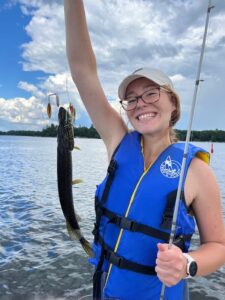
On this episode of the Root & STEM podcast, former Pinnguaq co-op student, Julia Young, shares her unique journey as a highschool student and the helpful tips and tools she learned along the way.
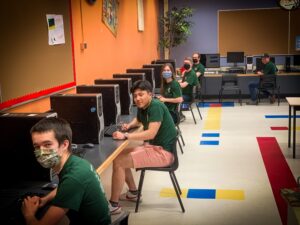
On this episode of the Root & STEM podcast, Christine Menard of Get Cyber Safe shares loads of tips and advice regarding cybersecurity. She begins with an explanation of what Get Cyber Safe is, and continues by revealing which demographics are the highest risk for cyber attacks.
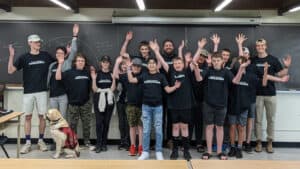
Winners of the 2023 Kawartha Lakes Hackathon, Callum Penney and Aiden Mackey, recap their experience participating in the event.
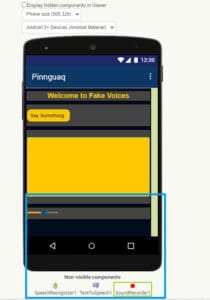
Students explore deepfakes and create a fake voices app using the MIT App Inventor. Learners also explore how deepfakes can pose a threat to online safety and privacy, and how they can have an impact on not only our daily lives but also other areas like commerce, history, crime, and pop culture.
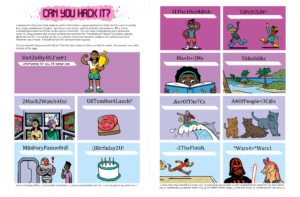
Can you Hack it?
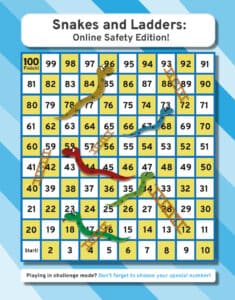
Navigating the internet can feel tricky sometimes, much like a game of Snakes and Ladders. But in this version of the classic game, there’s a twist. The objective is to be the first to reach the 100th square but some squares have snakes and some squares have ladders. Check out Challenge Mode to challenge yourself further.
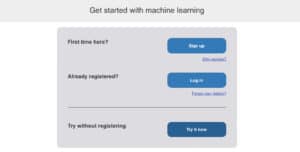
Students learn how computers can process and categorize images. They program and train a computer to recognize certain images and teach it to play Rock, Paper, Scissors.
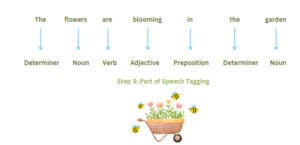
Students learn about natural language processing (NLP) and how it works. They also learn to apply the rules of NLP to a text, how computers identify tag words, and how voice-generated technology impacts many aspects of daily life.
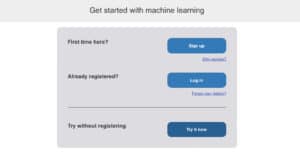
Students explore aspects of AI and develop their own simple AI programs. Then, they connect their newfound knowledge to real-world examples.

Lawyer and UOIT Business Law Professor, Dr. Rajen Akalu offers insights on the privacy concerns of artificial intelligence and data collection.